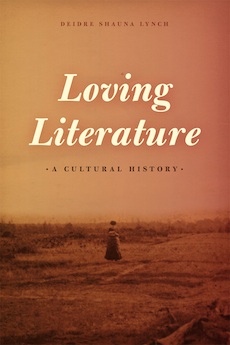Shortlisted for the 2016 ΦBK Christian Gauss Award
By Lewis Fried
Lynch has written an intellectually “thick” book, both original and synthetic, spanning the age of Johnson and continuing to the latter half of the nineteenth-century, with a nod to the implications of the Newbolt Report (1921), The Teaching of English in England. (This reader came away with the impression that there is very little—if anything—that Lynch does not know about this period’s literature and letters.) In her words, Loving Literature studies “how literature, in just this time period when it came to name an object possessed of a history distinct from the history of writing, in general, came as well to name an object of the affections.” For her, this period witnessed “new etiquettes of literary appreciation,” which involve professional pedagogy as well as love of subject.
Those who teach invariably confront a salient question: “how has it come to be that those of us for whom English is a line of work are also called upon to love literature and to ensure that others do so too.” One can, and perhaps should, quarrel with this division, but the author, with much illumination, traces the shape and stakes this division manifests. One great advantage of this is that her work supplements (and for some, will replace) a historical study of English literature based without consideration for its affective nature.
The author masterfully links the history of literature, the development of our affective relations with such, and the numerous engagements a reading public had with a socially-created product that exposed an author, a sensibility, and in instances, a self readers felt necessary to comprehend. If we ask, as Lynch makes clear, what an “emotional commitment” to literature is, we are led to also ask is this a singular or unique attachment, or, is it many, hiding under the rubric of terms such as loving or liking? And how do these categories maintain themselves—or are culturally nourished—in an epoch in which machine technology challenged the value of the emotions as a valuable way of knowing the world.
Loving Literature, engagingly presented as an itinerary of readers’ loves and affections, opens with chapters moving from “Making It Personal” through “Wedded to Books” and “Going Steady” to “Poetry at Death’s Door.” This is not an inclusive list but suggests how tightly Lynch’s material and her thesis are bound. As the chapters progress, discussions of philosophy, the sociological imagination, the state (and nature) of publishing, the back-and-forth of allusions, themes, and replies inform Lynch’s readings. Witness her suggesting a cultural gestalt containing public and private re-inventions alongside the history of books and our emotions. Accepting that “Great books” [sic] engage the reader in multiple “transactions,” she writes that “the story of inexhaustibly rereadable Great Books [sic] is also that of valetudinarians’ health regimes, of the compulsory coupledom of a new marriage culture, and of the transformations that reinvented the family and that made a group formerly understood primarily as a unit of economic production into Western culture’s primary scene of emotional gratification.” She’s got much to say, perhaps too much. Which terms are analogous? Which causal? Which epiphenomena? And which coincidental? Or, is this caviling at details within such a majestic sweep? Who or what doesn’t fit into this reading? And yet, a conceptual unity does emerge.
Lynch’s prose (freely flowing or not—you choose) reveals the excitement of discovery. This is a provocative study, one that will influence our own understanding of how and why books command our attention and emotional esteem. These points raised, Loving Literature will change a reader’s comprehension of how books make (and made) a private as well as communal way of being in the world.
Lewis Fried (ΦBK, Queen’s College, CUNY, 1964) is Professor of English Emeritus at Kent State University and a resident member of the Nu of Ohio chapter of Phi Beta Kappa.




